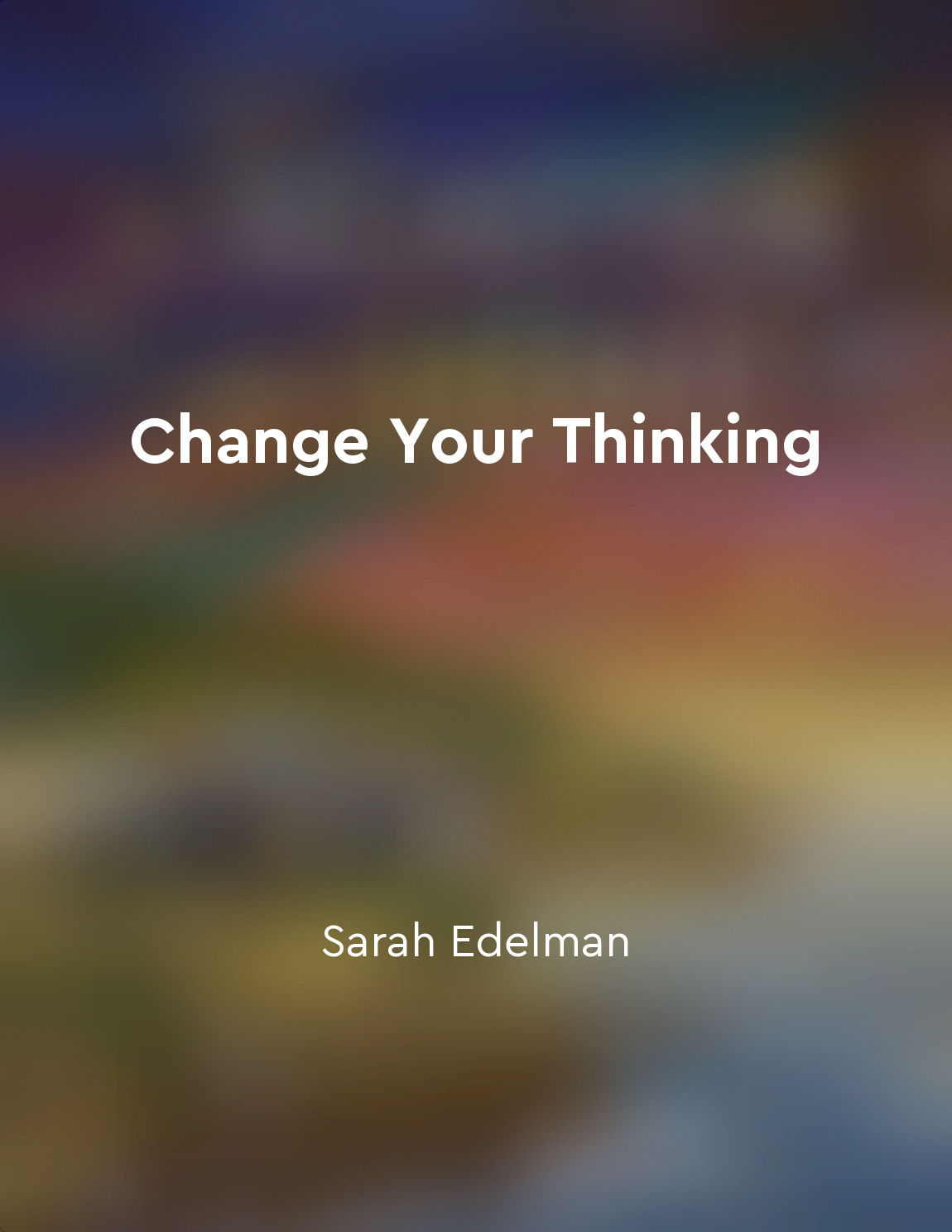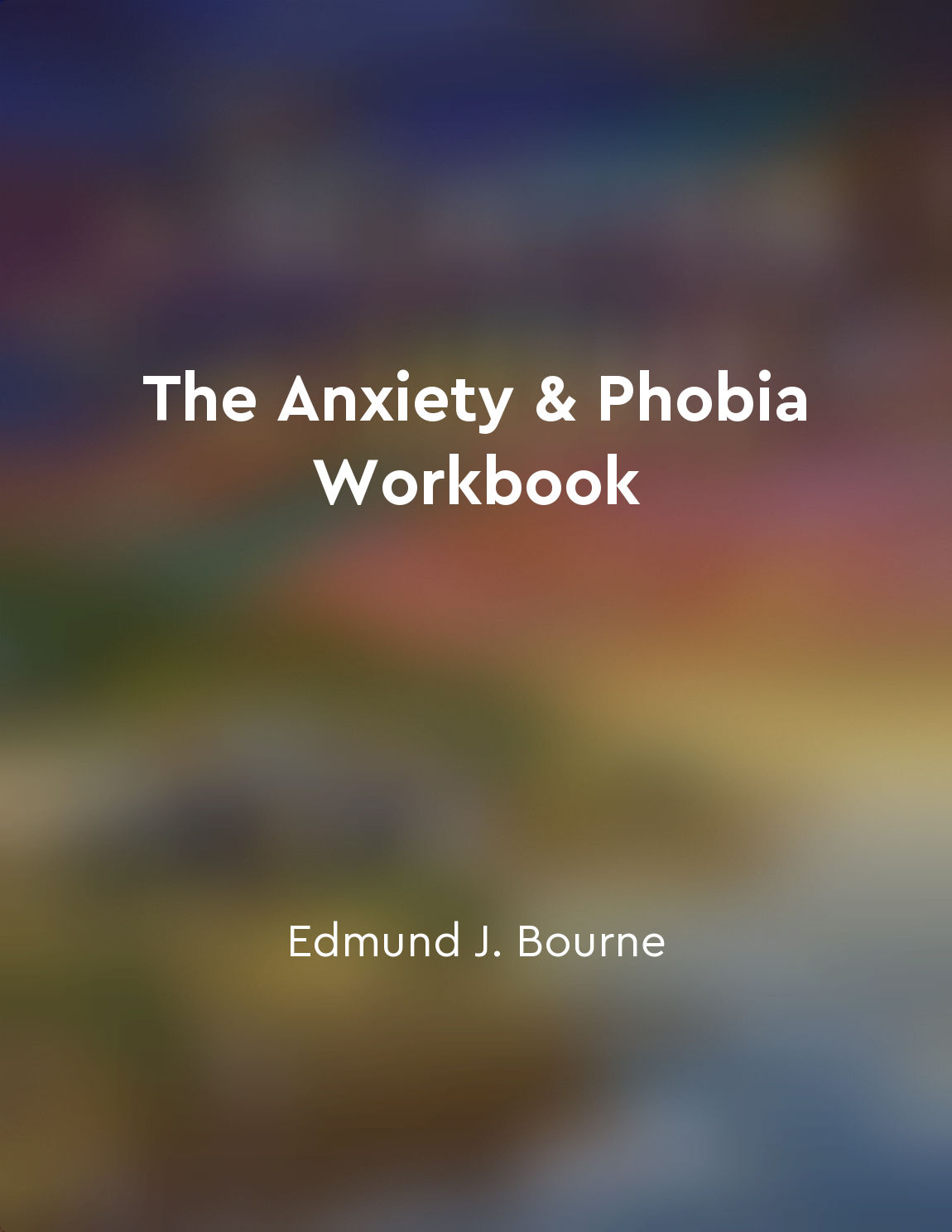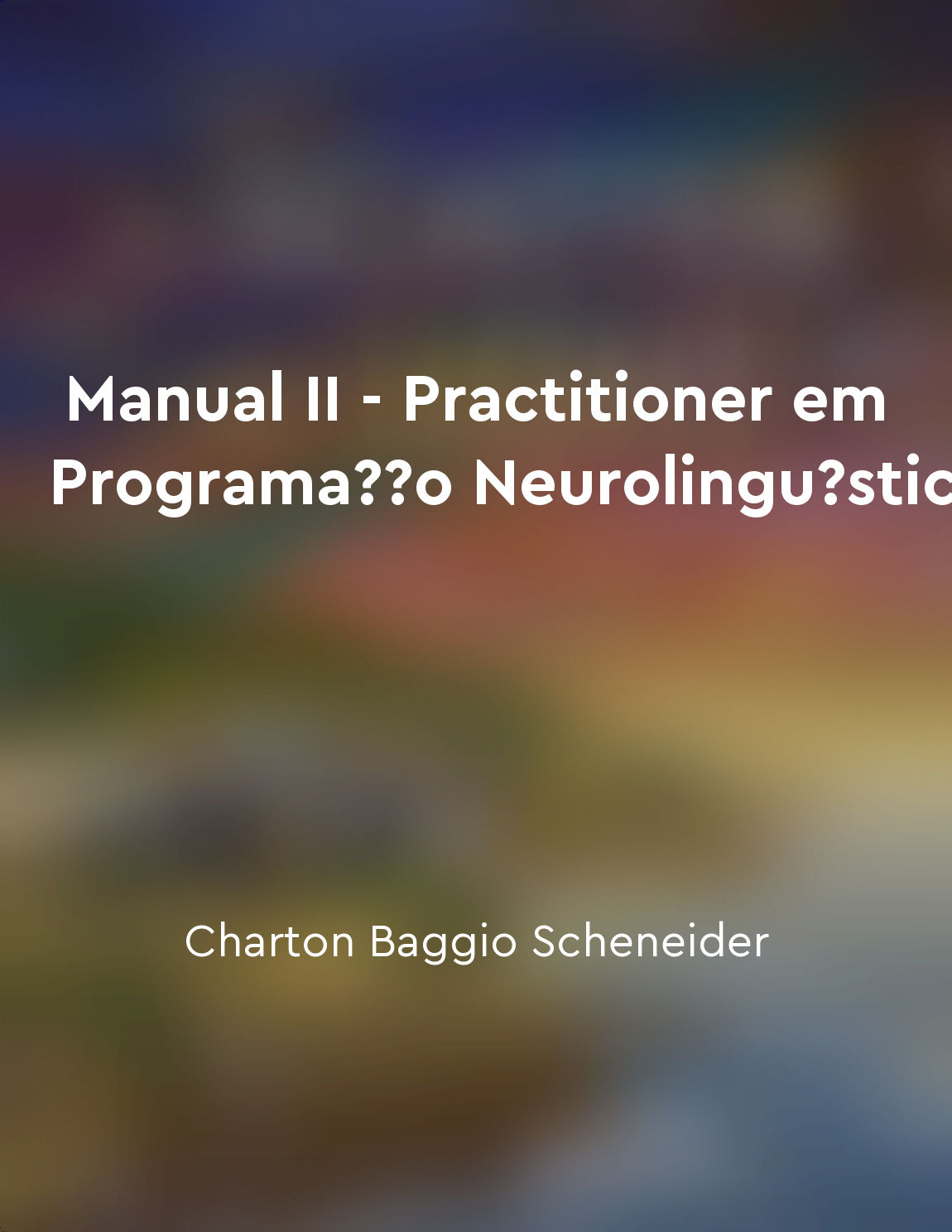Audio available in app
Behavioral experiments can test the validity of anxious beliefs from "summary" of Cognitive Therapy of Anxiety Disorders by David A. Clark,Aaron T. Beck
Behavioral experiments provide a powerful method for testing the validity of anxious beliefs. These experiments involve creating situations that directly challenge the individual's anxious assumptions. By engaging in these behavioral experiments, individuals can gather concrete evidence that either supports or refutes their anxious beliefs. This process allows individuals to evaluate the accuracy of their thinking in a real-world context. Through the use of behavioral experiments, individuals with anxiety disorders can actively test the predictions that underlie their anxious thoughts. By engaging in these experiments, individuals can gather new information that may contradict their beliefs. This process helps individuals to recognize when their thoughts are not based on reality but rather on distorted perceptions. Behavioral experiments also provide individuals with the opportunity to gain a more balanced perspective on their fears. By directly confronting their anxious beliefs, individuals can develop a more accurate understanding of the likelihood and consequences of their feared outcomes. This process can help individuals to challenge the catastrophic thinking patterns that often accompany anxiety disorders. Furthermore, behavioral experiments offer individuals the chance to develop effective coping strategies for managing their anxiety. By engaging in these experiments, individuals can practice new behaviors that help them to confront their fears and reduce their anxiety levels. This process enables individuals to learn that they can effectively cope with anxiety-provoking situations, thereby increasing their sense of control and self-efficacy.- Behavioral experiments play a crucial role in cognitive therapy for anxiety disorders by providing a practical and effective way to test the validity of anxious beliefs. Through these experiments, individuals can gather concrete evidence, challenge distorted thinking patterns, gain a more balanced perspective on their fears, and develop effective coping strategies. By actively engaging in behavioral experiments, individuals can work towards overcoming their anxiety and improving their overall well-being.
Similar Posts

Temporality shapes our understanding of self
The self is not a static entity that exists in isolation. Rather, it is a dynamic and evolving entity that is fundamentally int...

Avoid processed and sugary foods
When it comes to managing your mental health through diet, one of the key principles to follow is steering clear of processed a...

Adopting a growth mindset
The concept of adopting a growth mindset involves believing that one's abilities and intelligence are not fixed, but can be dev...

Physical exercise can release tension and reduce anxiety
Engaging in physical exercise is a powerful tool for managing anxiety. When you are anxious, your body goes into "fight or flig...
Break tasks into smaller steps to manage anxiety
When faced with overwhelming tasks, it is common for anxiety to spike. The thought of tackling a large project or goal can feel...

Take time for selfcare and self-reflection
In the hustle and bustle of daily life, it is easy to get caught up in the chaos and forget about taking care of ourselves. How...

Using language patterns for persuasion
The concept of using language patterns for persuasion is a powerful tool in the field of Neuro-Linguistic Programming. By under...
Practicing selfcompassion
Practicing self-compassion is a crucial concept that many of us struggle with. It involves treating ourselves with the same kin...
Anxiety and phobias are common and treatable conditions
Anxiety and phobias are widespread issues that affect many individuals, but the good news is that they are highly treatable con...
Connect with others
The ability to connect with others is one of the most important skills in the 21st century. In a world that is increasingly int...

